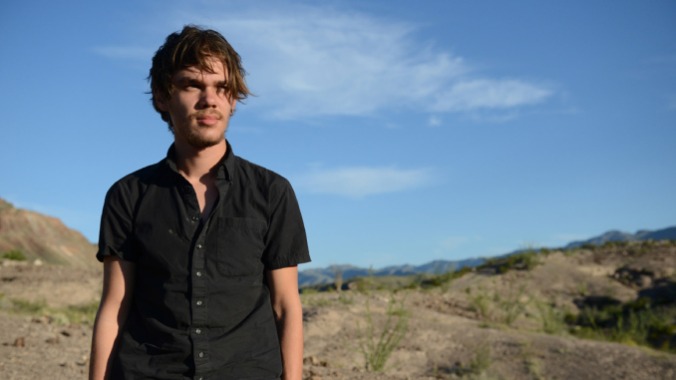I Don’t Want to Be Your Hero: Boyhood at 10

Celebrating the 10th anniversary of Boyhood is a prospect directly tied into the film’s baked-in meditation on the progression of time. Director Richard Linklater’s acclaimed, nearly three-hour opus documenting the adolescent growth of a young boy named Mason Jr. (Ellar Coltrane) was highly publicized at the time of release for its singular method of production: Ellar and the rest of the cast literally age before our eyes, having agreed to annually gather to shoot the film over the course of 12 years. It gives Boyhood, especially the segments shot toward the beginning of the project, an aura of a living, wistful, nostalgic artifact, as we see not just Mason grow over the course of more than a decade, but the world around him as well, into the one we also occupied back in 2014. Now, in 2024, the final glimpse we have of Mason—slightly high and sitting atop a hill with a girl he’s just met at Big Bend Ranch State Park, staring off at the mountainous peaks at sunset just before his first semester of college—is an artifact as well.
Boyhood insists that you recognize some aspect of your life within the grand scope of its everydayness, something that works to unlock a sense of poignant emotional truth within yourself, borne of its coming-of-age narrative. In that sense, it is a film that shifts and changes between each viewing, as one’s perspective on their life matures. I’m not the same person I was when I saw the final moments of Boyhood at 16 in a small arthouse theater in San Antonio with my mom. I don’t live in San Antonio anymore. That arthouse theater shut down years ago. In stitching an epic tapestry defined by the mundane, the ordinary and the developmental, Boyhood’s slice-of-life milieu becomes a more all-encompassing document of the inevitable passage of time, a concept that becomes inextricable from how you respond to the film. It’s an ever-evolving looking glass of memories.
That same artifact-type quality is what generates the small, novel rush of seeing archival performances from the film’s biggest stars. Ethan Hawke stars as Mason Sr., entering the film around 2004, when we as an audience still recognize him as the mid-30s, pining, impassioned author from Before Sunset, the middle chapter of Linklater’s other major experiment with the flow of time. Over 160 minutes, he gradually morphs into the Hawke of Before Midnight, with a decade of added experience as an actor, and who himself is now a man of the past. But the flow of time in Boyhood has a distinctly different effect than the nine-year check-ins of the Before films. As opposed to aging with the characters, we see entire lives as a collage right before our eyes, defined by a patchwork of commonplace moments. As Hawke himself said about the film, it’s like “time-lapse photography of a human being.”
This methodology makes for distinct results when defining and developing these characters. You get a similar nostalgic effect seeing the performance of Patricia Arquette as Mason’s mother Olivia, serving as he and his sister Samantha’s (Lorelei Linklater) primary guardian, whereas Mason Sr. embodies the archetype of the father picking up the kids every other weekend in an effort to be more involved with their lives. In perpetually flashing forward through time, stopping for just small detours of what each year holds for them as parents, you are encouraged to fill in some of the extraneous gaps yourself. Mason Sr. morphs into the cool, free-spirited father while simultaneously maturing enough to foster a budding new family, but he also doesn’t bear the burden of responsibility of his kids day in and day out. That falls to Olivia. She can be painted as a stern mother just as often as an understanding and nurturing one, subject to the tolls of parenting as she attempts to create a better life for her kids while also being subject to additional failed marriages due to the unyielding alcoholism of her successive husbands. The nuances of these dynamics threaten to become lost within the snapshot-style edit, but the full picture is always within reach.
-

-

-

-

- Curated Home Page Articles By Test Admin October 21, 2025 | 3:10pm
-

- Curated Home Page Articles By Test Admin October 21, 2025 | 2:57pm
- Urls By Test Admin October 21, 2025 | 2:57pm
- Curated Home Page Articles By Test Admin October 21, 2025 | 2:55pm
-

-

-

-

-

-

-

-

-

-

-

-

-

-

-

-

-

-

-

-

-

-

-

-

-

-

-

-

-

-

-




































